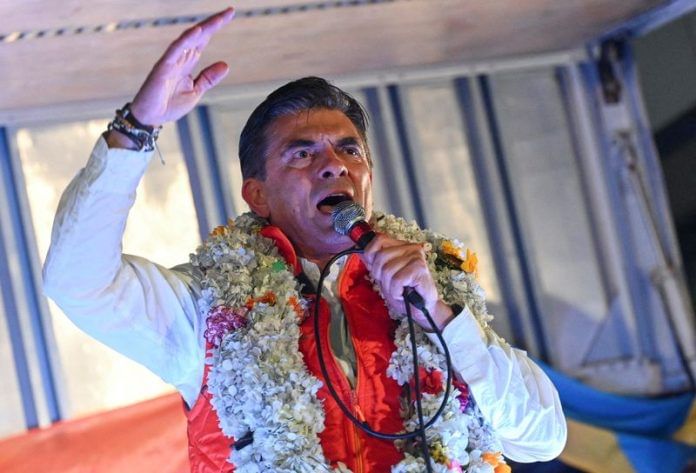By Marc Jones
LONDON (Reuters) -Investors welcomed the Bolivian presidential election win for centrist candidate Rodrigo Paz as markets reopened on Monday, but cautioned he now faces a major challenge fixing the economy, and will likely have to soften his resistance to IMF support.
The victory of Paz, a senator from the Christian Democratic Party, in Sunday’s run-off vote marked a historic shift for the South American nation, which has been governed almost continuously since 2006 by Bolivia’s Movement to Socialism (MAS) party.
Paz’s moderate platform — pledging to maintain social programmes while boosting private sector-led growth — appeared to resonate with left-leaning voters who would normally vote for MAS, but economists fear it may not be radical enough given the country’s plight.
Inflation has accelerated to levels not seen since its mid-1980s crisis, the fiscal deficit stands at around 10% of GDP while depleted foreign exchange reserves and diminished gas exports mean the currency now trades at a huge discount to the official rate on the streets.
“I don’t see much alternative to an IMF programme, but how that comes together is the key question for the market,” RBC BlueBay’s Graham Stock said, referring to how Paz, 58, had expressed a reluctance during his campaign to deepen engagement with the Fund.
Dealers were quoting the country’s 2028 and 2030 dollar-denominated international bonds at bid/asks of 82.5-84.5 and 83.0-85.0 cents on the dollar respectively as local trading got underway.
That was broadly in line with highs the bonds – which were at around 60 cents a year ago – reached last week ahead of the vote.
Paz will take office on November 8. His party does not hold a majority in the legislature, meaning he will be forced to forge alliances to govern effectively, although it will now be dominated by pro-business centrist and right-leaning parties.
Jefferies Managing Director Javier Kulesz said in a note it was “a big plus” for Paz, however, that the Congress will now be more ideologically aligned, even if still quite fragmented.
The key, however, will be whether the public will accept the measures Paz will now need to prescribe.
“Chances are he’ll get the traditional 100-day honeymoon period to push his agenda, but after that, things could get very tough,” Kulesz said.
Former Socialist president, “Evo Morales continues to have his following, potentially becoming a source of political tension and street pressure once the adjustment starts to bite,” he added.
RESTRUCTURING REQUIRED
Analysts at U.S. investment bank Citi said it was more a question of how fast Paz goes to the IMF, rather than if, as some sort of restructuring is now needed.
Despite Paz’s apparent ruling out of an IMF programme, an IMF official said on Friday that it had talked to both Paz and his election race rival, former president Jorge “Tuto” Quiroga, ahead of the vote.
With the economy in disarray and barely enough foreign exchange reserves to cover two months of imports, others have warned the crunch could come in March when Paz’s new government will face roughly $380 million worth of debt payments.
Markets would favour a “front-loaded fiscal consolidation… alongside a front-loaded exchange rate realignment,” analysts at JPMorgan added, saying both were essential to stabilising the economy.
“The principal challenges to any adjustment programme arise from Bolivia’s difficult initial conditions and the uncertain level of public support for austerity measures,” they said in a note on the election result.
(Reporting by Marc Jones; Editing by Susan Fenton)
Disclaimer: This report is auto generated from the Reuters news service. ThePrint holds no responsibility for its content.






